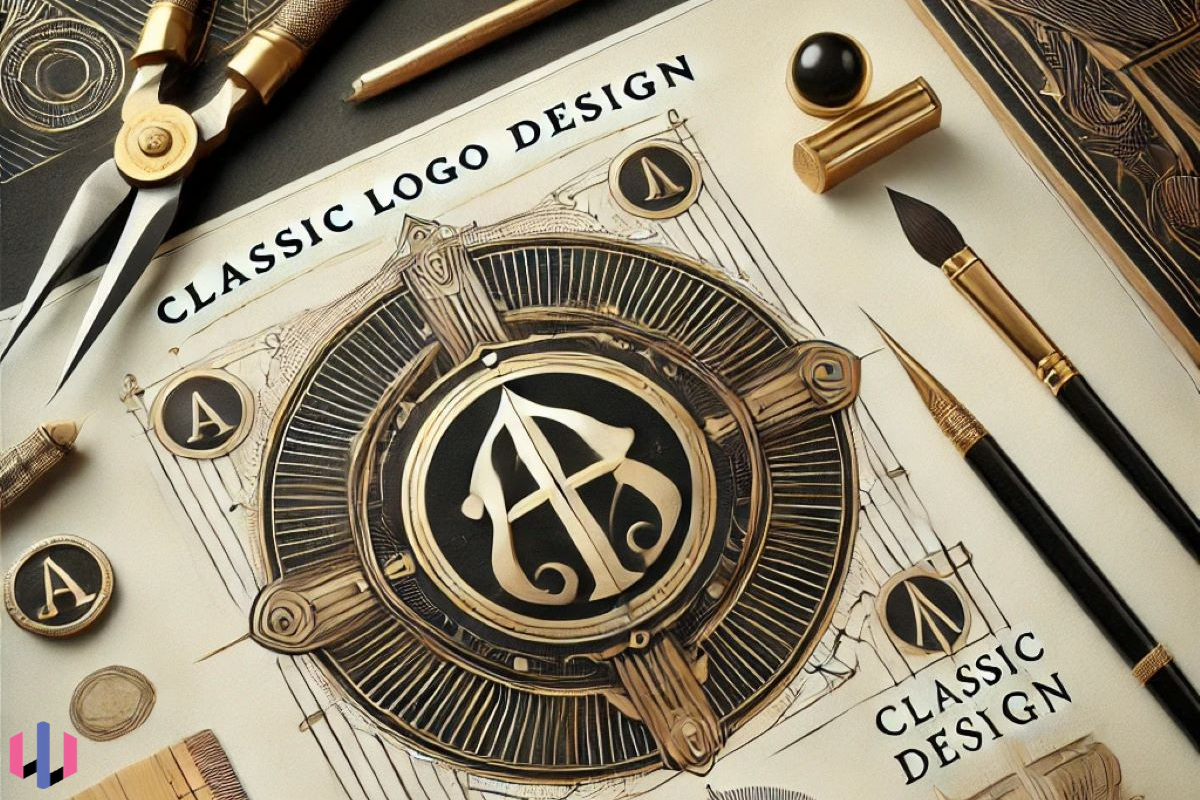Professional Classic Logo Design for your business. Capture the essence of your brand with designs that blend tradition and modernity, ensuring a powerful first impression.
In the realm of branding, few elements hold as much significance as a logo. Among various design styles, classic logo design stands out for its timeless appeal, simplicity, and versatility. This article delves into the essence of classic logo design, its characteristics, importance, and how it continues to thrive in an ever-evolving digital age.
What is Classic Logo Design?
Classic logo design refers to a style that embraces traditional elements of design, often characterized by minimalism, balanced typography, and timeless aesthetics.
Unlike trendy logos that may fade with time, classic logos are designed to endure, ensuring a brand remains recognizable for decades. These designs often avoid excessive embellishments, instead relying on clean lines, simple shapes, and harmonious layouts. Classic logos are not only visually appealing but also functional, seamlessly adapting to various mediums and sizes.
Key Characteristics of Classic Logo Design
1. Simplicity
At the heart of every classic logo is simplicity. This ensures that the logo is easy to recognize and remember. Examples include the Nike swoosh or Apple’s bitten apple simple yet iconic designs that transcend time.
2. Timelessness
Classic logos are not bound by trends or fads. They maintain relevance by focusing on universal design principles, such as symmetry and clarity, making them adaptable to any era.
3. Typography
Typography plays a pivotal role in classic logo design. Serif fonts are frequently used, as they evoke trust, tradition, and authority. However, clean sans-serif fonts can also work, depending on the brand's personality.
4. Color Palette
Neutral or subdued colors dominate classic designs, with black, white, and shades of gray often taking center stage. Occasionally, designers incorporate bold colors like red or gold to convey luxury or passion, but always in a balanced manner.
5. Versatility
Classic logos are crafted to perform well across various platforms, from print to digital media. This adaptability ensures the design remains consistent and impactful regardless of its application.
Why Classic Logo Design Matters
1. Builds Brand Identity
A classic logo creates a strong and cohesive brand identity. It becomes a visual shorthand for what the company represents, helping audiences form an immediate connection.
2. Enhances Credibility
Classic designs exude professionalism and reliability. Companies with such logos are often perceived as more trustworthy and established.
3. Long-Term Cost Effectiveness
Investing in a classic logo eliminates the need for frequent redesigns, saving companies significant costs over time. A timeless logo also reduces the risk of alienating long-term customers due to drastic changes.
4. Broad Appeal
Classic logos have universal appeal, transcending cultural and demographic boundaries. This ensures that the design resonates with diverse audiences.
Classic Logo Design in the Digital Era
While the core principles of classic logo design remain unchanged, designers now leverage modern tools to create digital-ready versions. These logos are optimized for high-resolution screens, responsive layouts, and even motion graphics, without compromising their traditional aesthetic.
Final Lines
Classic logo design is a testament to the adage "less is more." By focusing on simplicity, timelessness, and adaptability, these logos continue to stand the test of time, becoming powerful symbols of their respective brands. Whether you’re building a new brand or reimagining an existing one, embracing the principles of classic logo design can pave the way for lasting success.

